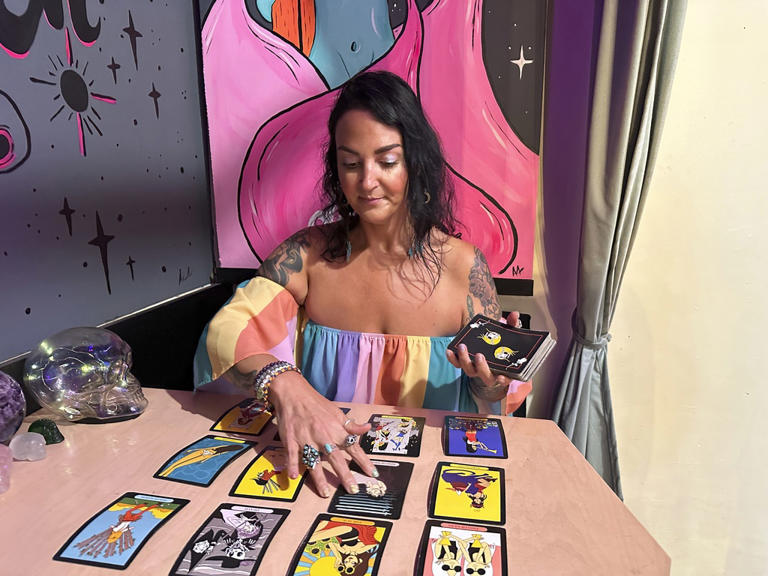Ashley Branton’s journey as a psychic medium spans seven years, during which she has developed a reputation for providing spiritual guidance and insight into life’s challenges. From helping clients navigate toxic relationships to advising on major life decisions like relocating across the country, Branton’s work revolves around her intuitive abilities and the use of tarot cards to uncover hidden truths and offer clarity.
Nestled in her shop, Velvet Witch, adorned with crystals and spiritual artifacts, Branton reflects on her unexpected encounter with Norfolk, Virginia’s long-standing ban on practices such as palmistry, palm reading, and clairvoyance for monetary gain. The repeal of this archaic ordinance, dating back 45 years, marks a significant shift in the legal landscape for practitioners like herself. Previously, engaging in these services for payment could have resulted in serious legal consequences, illustrating the historical stigma and skepticism surrounding psychic abilities in the eyes of the law.
City officials, including spokesperson Kelly Straub, confirmed that the repeal was prompted by the ordinance’s disuse and irrelevance in contemporary society. During the City Council’s decision, light-hearted remarks underscored the irony of once-criminalized practices now gaining acceptance and economic importance in a city known for its naval base and military presence.
Branton’s transition into psychic work from a background in makeup artistry highlights a personal evolution driven by a deep-seated connection to spiritual practices. Born with psychic gifts inherited from her family, Branton has always been attuned to energies and spirits, fostering a sense of empathy that guides her interactions with clients seeking guidance through life’s uncertainties.
The psychic services industry has seen significant growth nationwide, contributing billions annually to the economy and employing thousands. This growth is supported by shifting societal attitudes, propelled by social media and a cultural shift away from traditional religious affiliations. Branton notes that events like the COVID-19 pandemic have heightened societal stress and uncertainty, prompting individuals to seek solace and clarity through spiritual avenues.
Branton’s clientele has grown organically through word of mouth, a testament to her authenticity and dedication to providing meaningful guidance rather than mere financial gain. Her approach contrasts sharply with the stereotype of fortune-tellers portrayed in media and literature, emphasizing integrity and genuine service to those in need of spiritual insight.
While Norfolk’s repeal of the psychic services ban signifies progress towards recognizing these practices as legitimate professions, challenges remain in other jurisdictions where outdated laws still restrict or penalize psychic activities. Legal scholars argue that such restrictions often infringe upon First Amendment rights, echoing debates over free expression and the regulation of spiritual practices in a modern context.
Overall, Branton’s story mirrors a broader societal evolution towards embracing diverse spiritual practices and recognizing the valuable role of psychic mediums in providing comfort, guidance, and insight to individuals navigating life’s complexities. As cultural attitudes continue to evolve, the debate over the regulation and acceptance of psychic services will likely remain a dynamic and evolving aspect of contemporary legal and social discourse.
